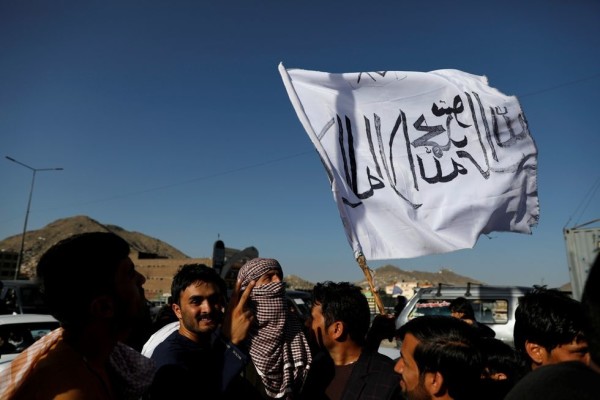

The Taliban claim they have no plans to stop fighting despite a story from the Associated Press, which reported the group’s ruling council had agreed to a temporary ceasefire.
“The reality of the situation is that the Islamic Emirate has no intention of declaring a ceasefire,” the Taliban said in a statement tweeted on Monday. “The United States has asked for a reduction in the scale and intensity of violence and discussions being held by the Islamic Emirate are revolving solely around this specific issue.”
The Associated Press initially reported on Monday that the Taliban’s leader was expected to approve the 10-day ceasefire, which would allow for the group to sign a peace agreement with the United States.
But the Taliban called media reports about the ceasefire agreement “false and baseless.” The group also claimed that unnamed intelligence agencies were using the ceasefire stories to sabotage ongoing peace negotiations.
“The leader of the Islamic Emirate has not yet issued a final decree and neither is there any differences within the Islamic Emirate related to this issue,” the Taliban statement says.
Task & Purpose was unable to reach the Taliban or the Associated Press for further comment on Monday.
So far, the Taliban have not given any indications that they intend to reduce their attacks on U.S. and Afghan forces. On Dec. 11, Taliban fighters attempted to breach Bagram Airfield’s defensive perimeter. A military spokesman said none of the Taliban got inside the wire, but the base’s passenger terminal was damaged during the attack.
A total of 20 U.S. troops have died during combat operations in Afghanistan so far in 2019. Army Sgt. 1st Class Michael James Goble was the most recent combat fatality. Goble, of 1st Battalion, 7th Special Forces Group, was on his eighth deployment when he was killed in Kunduz province two days before Christmas.
President Donald Trump suspended peace talks in September after the Taliban claimed responsibility for a Sept. 5 suicide car bomb attack in Kabul that killed Army Sgt. 1st Class Elis A. Barreto Ortiz, of the 3rd Brigade Combat Team, 82nd Airborne Division, along with a Romanian soldier and 10 Afghan civilians.
Prior to the attack, Trump had invited the Taliban to attend a summit at Camp David, Maryland, that had been scheduled for Sept. 8.
After peace talks with the Taliban ended, the U.S. military dropped 948 munitions in Afghanistan for the month of September, the most bombs dropped and missiles fired in any month since 2010, according to U.S. Air Forces Central Command.
“We did step up our attacks on the Taliban since the talks broke down,” Defense Secretary Mark Esper told reporters on Oct. 5. “The president spoke about this publicly – we did pick up the pace considerably.”
The increase was temporary. The number of weapons released in Afghanistan fell to 777 in October and 519 in November, according to AFCENT’s summary of wartime missions. Figures for December have not yet been released publicly.
The military situation in Afghanistan has long been a “strategic stalemate,” Army Gen. Mark Milley, chairman of the Joint Chiefs of Staff told reporters on Dec. 20.
“The Taliban cannot defeat militarily the regime – the government of Kabul – so long as the United States and its allies maintain some degree of military support,” Milley said during a Pentagon news briefing. “And the regime cannot military defeat the Taliban — or the various other groups over there — so long as they have sanctuary in Pakistan and they have some small degree of popularity amongst the people, which is rated at about 10 to 15 % or so in some of the rural areas.”
Milley also defended his earlier optimistic statements about the Afghan security forces after the Washington Post reported that an internal review showed that top U.S. government officials privately acknowledged that the Afghanistan war could not be won.
“I know that I and many, many others gave assessments at the time based on facts that we knew at the time,” Milley said. “And those were honest assessments, and they were never intended to deceive neither the Congress nor the American people.”
